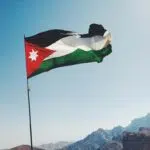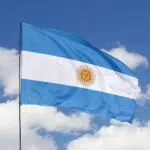The U.N. commemorates International Week of Solidarity with Peoples of Non-Self-Governing Territories annually from May 25 to May 31. The U.N. describes a Non-Self-Governing Territory as a territory “whose people have not yet gained a complete degree of self-government.” This day aims to request the administering Powers to protect and respect the rights of the peoples in these territories to their natural resources and their property rights. Currently, there are 17 non-self-governing territories left in the world.
History of International Week of Solidarity with the Peoples of Non-Self-Governing Territories
In 1946, eight Member States — Denmark, Australia, France, Belgium, New Zealand, the United Kingdom, the Netherlands, and the United States — identified 72 Non-Self-Governing Territories under their authority. However, eight became independent before 1959, and from 1960 to 2022, 54 territories attained self-government.
The transmission of information concerning the Non-Self-Governing Territories under Article 73 of the UN Charter encourages administering Powers to make known the political interests and the will of the people in those Territories. For various reasons, the administering Power’s transmission of information to 21 Non-Self-Governing Territories was halted. The U.N. General Assembly allowed the termination of information in some circumstances, such as in Greenland, Alaska, and Hawaii. In other countries, the administering Power chose to do so unilaterally.
In 1963, the U.N. General Assembly approved a new list of 64 territories to which the Decolonization Declaration of 1960 applied. The list included the two surviving Trust Territories at the time, which were the Trust Territory of the Pacific Islands and Nauru); the Non-Self-Governing Territories for which information was given under Chapter XI of the U.N. Charter, such as the Territories governed by Spain and Namibia (then known as South West Africa); and the Non-Self-Governing Territories regarding which no information had been communicated but which the UN General Assembly had decided to be non-self-governing, specifically the Territories administered by the U.N. (now Zimbabwe). In 1965, the list was updated to add Oman and French Somaliland (now Djibouti). New Caledonia and the Comoro Islands were also added in 1972 and 1986, respectively.
There are currently 17 non-sovereign territories remaining. The U.N. General Assembly requested the yearly commemoration of International Solidarity Week with the Peoples of Non-Self-Governing Territories in its Resolution 54/91 on December 6, 1999.
International Week of Solidarity with the Peoples of Non-Self-Governing Territories timeline
Many U.N. Member States recognize several territories under their jurisdiction that are not self-governing and add them to a U.N. list.
The U.N. General Assembly adopts a resolution on voluntary information transmission about the development of self-governing institutions in Non-Self-Governing Territories.
The U.N. General Assembly adopts the Resolution to annually observe the International Week of Solidarity with the Peoples of Non-Self-Governing Territories.
The international community celebrates the first International Week of Solidarity with the Peoples of Non-Self-Governing Territories on May 25.
International Week of Solidarity with the Peoples of Non-Self-Governing Territories FAQs
What countries are Non-Self-Governing Territories?
There are 17 countries included in the U.N. list: Western Sahara, Anguilla, British Virgin Islands, Cayman Islands, Falkland Islands (Malvinas), Montserrat, Saint Helena, Turks and Caicos Islands, United States Virgin Islands, Gibraltar, American Samoa, French Polynesia, Guam, New Caledonia, Pitcairn, Tokelau.
How many people live in Non-Self-Governing Territories?
As per U.N. data, less than two million people still live under colonial rule in these Territories.
What can the U.N. do to assist Non-Self-Governing Territories?
The Department’s Electoral Assistance Division can provide technical advice on a referendum to decide on the future status of a Territory or to observe the referendum process, should such a request come from the administering Power and the people of the Territory.
How to Observe International Week of Solidarity with the Peoples of Non-Self-Governing Territories
Spread awareness about it
Many people are not aware of the fact that such a week exists. Spread awareness about it so more people know about how the U.N. is handling the Non-Self-Governing Territories of the world. Use social media to let people know about it. Create a hashtag to support the week in solidarity with the peoples of Non-Self-Governing Territories.
Teach your children about decolonization
One of the major reasons for the decline in the number of Non-Self-Governing Territories is the end of colonization. Colonization has been going on in the world for a long time and although it does not prevail anymore, numerous territories remain under colonial rule. Teach young kids about its huge ripple effect in the world.
Take action
While observing the rights that people in Non-Self-Governing Territories have, we should also be cognizant of the rights that people are deprived of in other parts of the world. After learning about the deprivation and violation of basic rights and freedoms people still face daily, act on the ways you could try to help fight against systemic issues.
5 Interesting Facts About Non-Self-Governing Territories
There is a high number of Territories
In 1946, there were 72 Non-Self-Governing Territories in the world and 17 remain today.
China influenced the status of smaller Tterritories
In 1972, Hong Kong and Macau were removed from the U.N. list at the request of China.
Bermuda remains a Territory
Although Bermuda considers itself autonomous, it has been on the UN’s list of Non-Self-Governing Territories since 1946.
The United Kingdom controls nine Territories
The United Kingdom administers nine Territories across North and South America, Europe, Africa, and Oceania.
Puerto Rico residents do not have voting rights
Although Puerto Ricans are American citizens by birth and are subject to most American federal laws, they can not vote in presidential elections and do not have voting representation in Congress since Puerto Rico is neither an independent country nor a state.
Why International Week of Solidarity with the Peoples of Non-Self-Governing Territories is Important
It guarantees people's rights
Although the U.N. took the step to safeguard the protection of the peoples of Non-Self-Governing Territories' intrinsic rights, we need to ensure that we keep the governments of the administering power accountable to ensure that people who live in these territories are not deprived of their rights to their lands, lifestyle, and all the resources their land offers. It is important to keep governing powers accountable to allow for this.
It secures resources of the region
It is important to be informed about the future development of natural resources in the Territories. It is also important to seek that the administering powers take steps to protect their natural resources, especially land.
We learn from the past
It is important to reflect on the past, such as the reason for the emergence of Non-Self-Governing Territories and the current conditions of the people in these Territories. Only by reflecting on the past do we ensure we don’t repeat the same mistakes.
International Week of Solidarity with the Peoples of Non-Self-Governing Territories dates
| Year | Date | Day |
|---|---|---|
| 2026 | May 25–31 | Monday–Sunday |
| 2027 | May 25–31 | Tuesday–Monday |
| 2028 | May 25–31 | Thursday–Wednesday |
| 2029 | May 25–31 | Friday–Thursday |
| 2030 | May 25–31 | Saturday–Friday |































